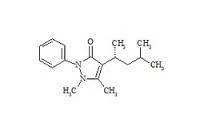- Afrikaans
- Albanian
- Amharic
- Arabic
- Armenian
- Azerbaijani
- Basque
- Belarusian
- Bengali
- Bosnian
- Bulgarian
- Catalan
- Cebuano
- Corsican
- Croatian
- Czech
- Danish
- Dutch
- English
- Esperanto
- Estonian
- Finnish
- French
- Frisian
- Galician
- Georgian
- German
- Greek
- Gujarati
- Haitian Creole
- hausa
- hawaiian
- Hebrew
- Hindi
- Miao
- Hungarian
- Icelandic
- igbo
- Indonesian
- irish
- Italian
- Japanese
- Javanese
- Kannada
- kazakh
- Khmer
- Rwandese
- Korean
- Kurdish
- Kyrgyz
- Lao
- Latin
- Latvian
- Lithuanian
- Luxembourgish
- Macedonian
- Malgashi
- Malay
- Malayalam
- Maltese
- Maori
- Marathi
- Mongolian
- Myanmar
- Nepali
- Norwegian
- Norwegian
- Occitan
- Pashto
- Persian
- Polish
- Portuguese
- Punjabi
- Romanian
- Russian
- Samoan
- Scottish Gaelic
- Serbian
- Sesotho
- Shona
- Sindhi
- Sinhala
- Slovak
- Slovenian
- Somali
- Spanish
- Sundanese
- Swahili
- Swedish
- Tagalog
- Tajik
- Tamil
- Tatar
- Telugu
- Thai
- Turkish
- Turkmen
- Ukrainian
- Urdu
- Uighur
- Uzbek
- Vietnamese
- Welsh
- Bantu
- Yiddish
- Yoruba
- Zulu
10 月 . 21, 2024 18:44 Back to list
Generic Options for Gentamicin Sulfate Antibiotic and Their Uses
Understanding Gentamicin Sulfate A Comprehensive Overview
Gentamicin sulfate is an antibiotic belonging to the aminoglycoside class, widely used in clinical practice for its potent bactericidal properties. Discovered in the 1960s, gentamicin sulfate has been a crucial tool in the treatment of various bacterial infections, particularly those caused by Gram-negative organisms. This article aims to provide a detailed look into the drug, its uses, benefits, risks, and considerations for patients.
Mechanism of Action
Gentamicin sulfate works by inhibiting bacterial protein synthesis. It binds to the 30S subunit of the bacterial ribosome, disrupting the translation process. This action interferes with the production of essential proteins required for bacterial growth and replication, ultimately leading to cell death. Its effectiveness against a broad range of pathogenic bacteria makes it a preferred choice for treating serious infections.
Uses in Medicine
Gentamicin sulfate is primarily utilized in the treatment of severe infections caused by Gram-negative bacteria, such as *Escherichia coli, Pseudomonas aeruginosa,* and *Klebsiella pneumoniae.* It is often employed in cases of bacteremia, urinary tract infections, respiratory tract infections, and skin infections. Additionally, gentamicin sulfate is sometimes prescribed in combination with other antibiotics to enhance its efficacy against resistant strains of bacteria.
In certain conditions, such as endocarditis or severe burns, gentamicin may be administered topically to localized areas of infection. It is essential for healthcare professionals to conduct sensitivity testing to ensure the bacteria are susceptible to gentamicin before initiating treatment.
Administration and Dosage
gentamicin sulfate generic

Gentamicin sulfate can be administered via various routes, including intravenous (IV), intramuscular (IM), and topical applications. The choice of route often depends on the severity of the infection, the patient’s overall health, and the specific bacterial strain involved. Dosage varies based on several factors, including the patient's age, weight, renal function, and the nature of the infection.
Due to its potential for nephrotoxicity and ototoxicity, healthcare providers are diligent in monitoring patients receiving gentamicin sulfate. Regular blood tests may be conducted to ensure drug levels remain within therapeutic ranges while minimizing toxicity risks.
Side Effects and Considerations
While gentamicin sulfate is effective against various bacterial infections, it is not without side effects. Commonly reported adverse effects include dizziness, tinnitus, headaches, and nausea. More severe adverse effects can involve kidney damage or hearing loss, particularly if the drug is used for extended periods or in higher doses. Therefore, it is crucial for patients to report any unusual symptoms to their healthcare provider promptly.
Patients with pre-existing renal impairment, hearing loss, or neuromuscular disorders should exercise caution and discuss their medical history with their healthcare provider before starting treatment with gentamicin. Additionally,It is essential to adhere to the prescribed dosage and duration to avoid the risk of antibiotic resistance.
Conclusion
Gentamicin sulfate remains a cornerstone in the management of severe bacterial infections, offering significant benefits in its bactericidal action. Healthcare providers must balance the drug's efficacy against its potential risks, ensuring close monitoring of patients during treatment. As antibiotic resistance continues to pose a critical challenge in modern medicine, understanding and utilizing agents like gentamicin sulfate responsibly is vital for maintaining its effectiveness in clinical practice. By recognizing the essential role of such antibiotics, we can optimize patient outcomes while safeguarding the power of these medications for future generations.
-
The Power of Radix Isatidis Extract for Your Health and Wellness
NewsOct.29,2024
-
Neomycin Sulfate Soluble Powder: A Versatile Solution for Pet Health
NewsOct.29,2024
-
Lincomycin Hydrochloride Soluble Powder – The Essential Solution
NewsOct.29,2024
-
Garamycin Gentamicin Sulfate for Effective Infection Control
NewsOct.29,2024
-
Doxycycline Hyclate Soluble Powder: Your Antibiotic Needs
NewsOct.29,2024
-
Tilmicosin Premix: The Ultimate Solution for Poultry Health
NewsOct.29,2024













